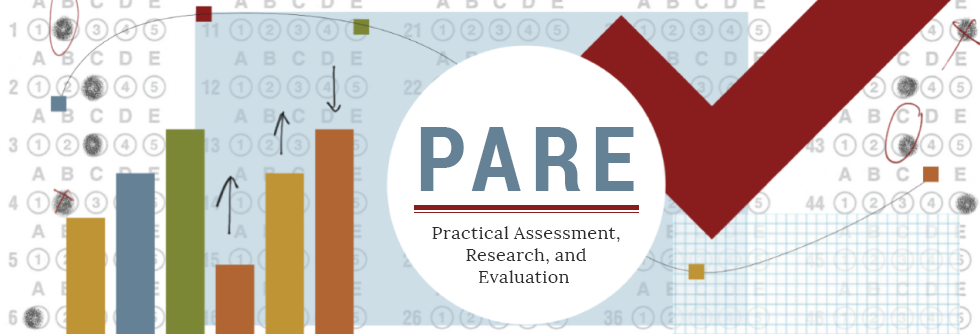Effect of Adjusting Pseudo-Guessing Parameter Estimates on Test Scaling When Item Parameter Drift Is Present
- Kyung T. Han
- Craig S. Wells
- Ronald K. Hambleton
Abstract
In item response theory test scaling/equating with the three-parameter model, the scaling coefficients A and B have no impact on the c-parameter estimates of the test items since the c-parameter estimates are not adjusted in the scaling/equating procedure. The main research question in this study concerned how serious the consequences would be if c-parameter estimates are not adjusted in the test equating procedure when item-parameter drift (IPD) is present. This drift is commonly observed in equating studies and hence, has been the source of considerable research. The results from a series of Monte-Carlo simulation studies conducted under 32 different combinations of conditions showed that some calibration strategies in the study, where the c-parameters were adjusted to be identical across two test forms, resulted in more robust equating performance in the presence of IPD. This paper discusses the practical effectiveness and the theoretical importance of appropriately adjusting c-parameter estimates in equating. Accessed 3,754 times on https://pareonline.net from July 04, 2015 to December 31, 2019. For downloads from January 1, 2020 forward, please click on the PlumX Metrics link to the right.
Keywords: Test Construction
How to Cite:
Han, K. T., Wells, C. S. & Hambleton, R. K., (2015) “Effect of Adjusting Pseudo-Guessing Parameter Estimates on Test Scaling When Item Parameter Drift Is Present”, Practical Assessment, Research, and Evaluation 20(1): 16. doi: https://doi.org/10.7275/jyyy-wp74
Downloads:
Download PDF
View PDF
559 Views
104 Downloads
